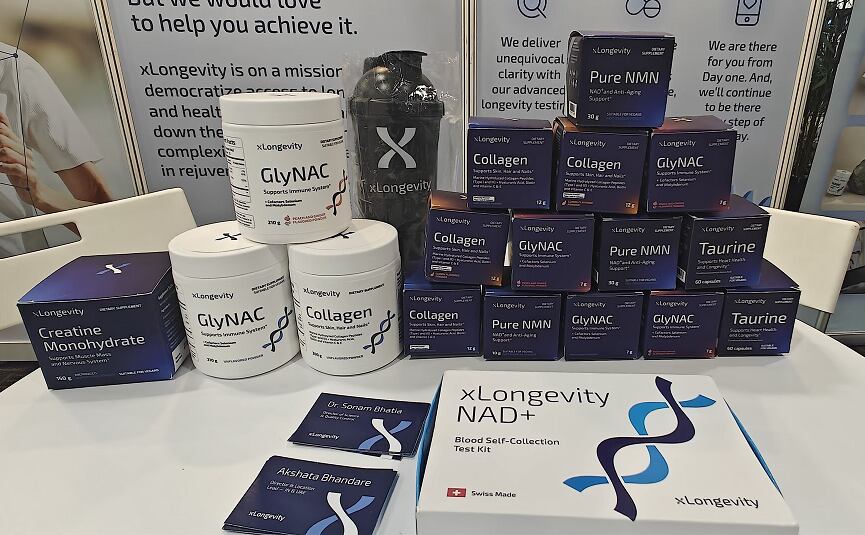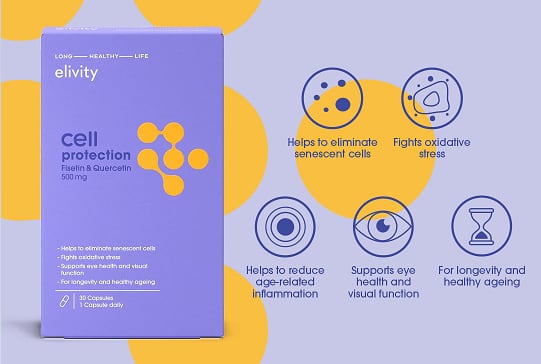xLongevity was established about eight months ago and within Asia-Pacific, it is currently active in India, where its supplements are also available.
With a focus on longevity health, the company has developed products that supplement nutrients that decrease in the body with age, including NAD+ and glutathione.
The more important mission, however, is to empower people to take care of their health not only through supplementation but also tapping on the use of diagnostics and a holistic lifestyle approach.
“We are not a supplement company. I always say: ‘do not buy our supplements or our products if you don't get the basics right.’
“This is because if you do not have a good diet, if you do not exercise, if you do not have a good sleep management, these things will not help you, as it is way more advantageous to get these things right. Exercise, for example, is good and has been proven to be so for many times,” founder and CEO Dr Pierre-Edouard Sottas told NutraIngredients-Asia.
“However, if you get 80 per cent [of the above] right and want to get the other 20 per cent right, supplements will be a great thing,” he said.
Still, intervention through dietary supplementation is only one pillar of what the company is doing.
Dr Sottas believes in the “three pillars” approach which consists of testing, intervention, and coaching.
NAD+ testing
Within APAC, xLongevity currently sells in India a NAD+ test kit which measures NAD+ levels using blood samples.
The company claims that this is India’s first consumer NAD+ test which could be performed at home.
Consumers can then mail the samples to the firm’s partnering lab Biostarks based in Geneva for results analysis.
Dr Sottas said there were plans to launch more test kits into the market, including a glutathione blood test.
Testing helps users find out the efficacy of supplementation and could offer a personalised approach to nutrition, he said, adding that there has been a shift from a reactive to a patient-centric approach to nutrition in the healthcare sector.
Other tests
When it comes to biomarker testing, Dr Sottas pointed out that it was crucial to select the biomarkers that could demonstrate the safety and efficacy of supplementation.
Curcumin, for instance, is usually used for anti-inflammatory purposes and therefore its effects could be assessed by measuring the markers of inflammation, such as c-reactive protein, IL-6, and TNF-alpha.
“My role is to insist on the need for more companion diagnostics. There are a lot of research and companies doing biological age clock testing, but the number of companies that exist for doing biomarker response testing is pretty low.
“That's why I am promoting this idea that we need to test the effects of supplementation, especially because the regulations for supplements are way lesser than the pharmaceutical industry,” he said.
xLongevity also offers supplements such as collagen and creatine monohydrate. The effects of collagen supplementation, for instance, could be tested by measuring skin elasticity and the latter could be determined by the levels of creatine in the body.
Dr Sottas also believes that there is a market demand for sophisticated companion diagnostics.
“Many people are already doing vitamin D and omega-3 tests and they will understand that sophisticated testing is going to be valuable for them too.”
Lack of tests for senolytics
Dr Sottas also noticed that currently, there is a lack of diagnostics that measure the effects of senolytics supplementation on the body, and his goal is to fill the gap.
Senolytics supplementation aims to clear senescent cells or “zombie cells” from the body and these cells are associated with ageing. Examples of senolytics supplements include fisetin and quercetin.
In the case of fisetin supplementation, he said that its efficacy could be tested by measuring its efficacy in clearing senescent cells.
“We do not measure fisetin levels in the body because it's not an essential nutrient like vitamin D or omega-3. What is interesting is to measure are its effects, for example, its effects on getting rid of the senescent cells or the zombie cells, and so, we are looking for biomarkers of senescence instead.”
Aside from senolytics, he also observed a lack of diagnostics for resveratrol, sirtuin activators, and spermidine supplementation in the commercial world.





